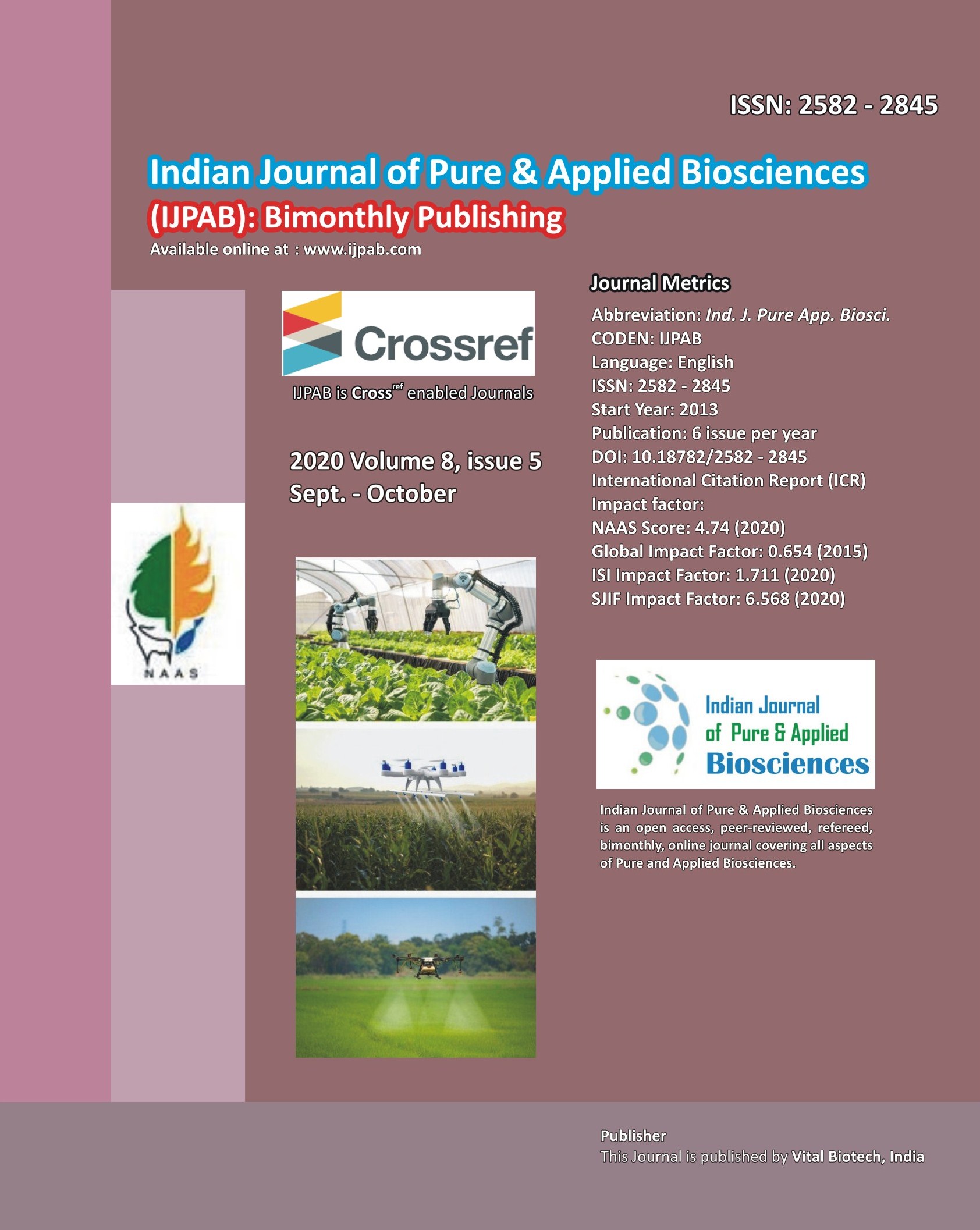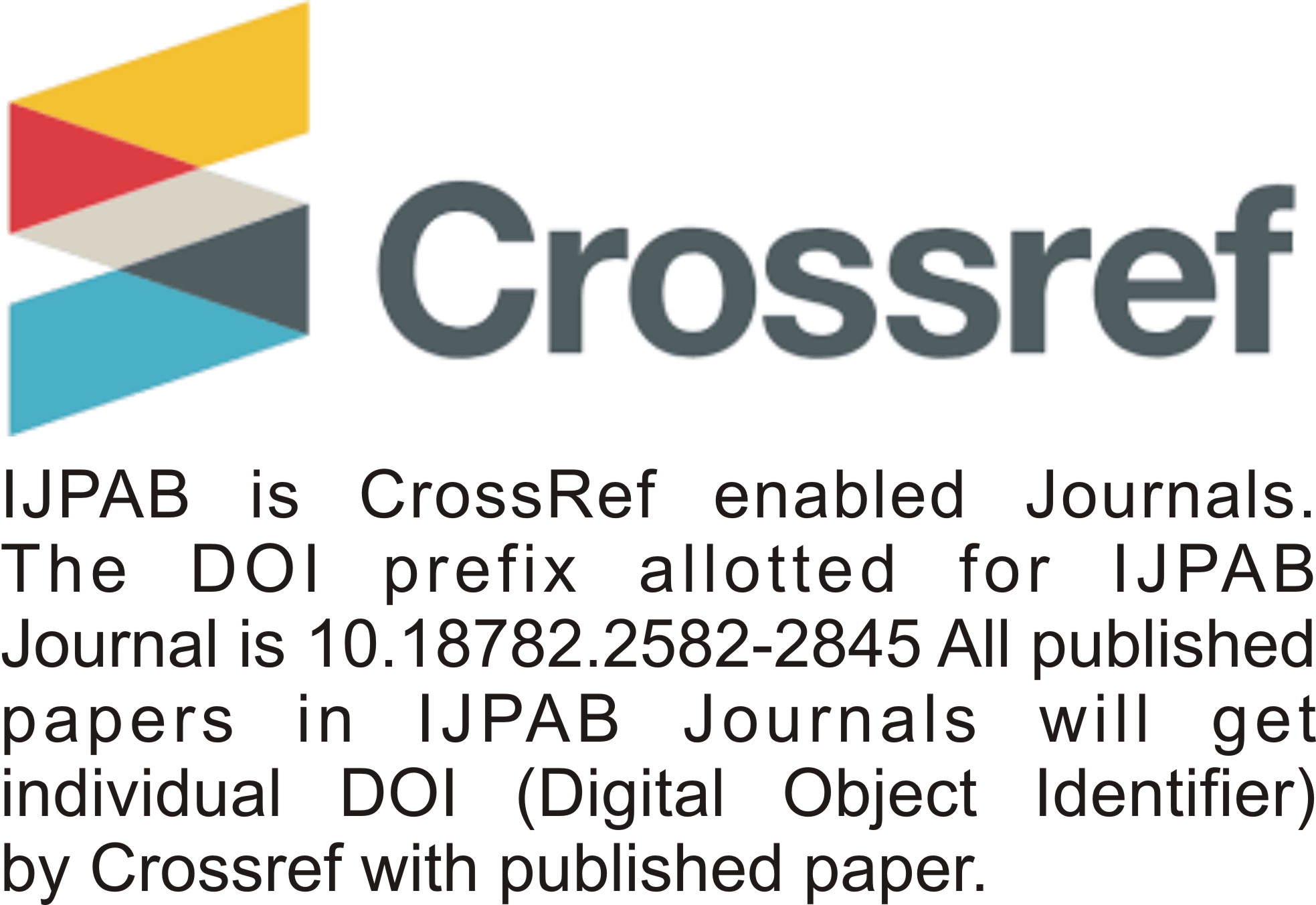
-
No. 772, Basant Vihar, Kota
Rajasthan-324009 India
-
Call Us On
+91 9784677044
-
Mail Us @
editor@ijpab.com
Indian Journal of Pure & Applied Biosciences (IJPAB)
Year : 2020, Volume : 8, Issue : 5
First page : (503) Last page : (514)
Article doi: : http://dx.doi.org/10.18782/2582-2845.8390
An Empirical Study on Farm Women Respondents in Tamil Nadu – Profile Status
Sakunthalai.A*
Professor (Agrl.Extension). AEC&RI, Kumulur – 621712, Tamil Nadu
*Corresponding Author E-mail: drasextn@gmail.com
Received: 9.09.2020 | Revised: 15.10.2020 | Accepted: 23.10.2020
ABSTRACT
“To awaken people, it is the women who must be awakened, once she is on move; the family moves, the village moves, the nation moves"-Jawaharlal Nehru
The rural women in India constitute nearly 77.00 per cent of the total female population. About 79.00 per cent of rural women workers are involved in agriculture related pursuits as cultivators and laborers. Farm and home were integral parts in the rural society in India and the 'housewife' in the farm stead often plays multiple roles as producer, entrepreneur, worker, consumer and homemaker. In the Indian scenario poverty in general and extreme poverty in particular, have a significant 'gender' dimension. Women were more sensitive than men to the extremes of poverty and its consequences. For poor households, the women's capacity to work, her health, her knowledge and her skill endowments were often the only resources to fall back for survival. The rural women in India were, therefore, critical to the processes of moving their families out of poverty. Around 30.00 per cent to 35.00 per cent of the rural Indian households were estimated to be headed by women. Even where there is a male earner, women's earnings form a major part of the income of poor households. Although women often have little control over their earnings, there is enough evidence to show that given some discretion, they prefer to spend their money on family needs. The most desirable option to generate their own income was through self employment and income generating activities despite the problems they face in gaining access to assets and resources. According to FAO, women account for more than half of the labour required to produce the food consumed in developing countries. Reforms are needed on several fronts from education and training to land ownership. Women's income have a greater impact on household Food security and on improving child health and nutrition.
Keywords: Gender, Entrepreneur, Homemaker, Food security, FAO.
Full Text : PDF; Journal doi : http://dx.doi.org/10.18782
Cite this article: Sakunthalai, A. (2020). An Empirical Study on Farm Women Respondents in Tamil Nadu – Profile Status, Ind. J. Pure App. Biosci. 8(5), 503-514. doi: http://dx.doi.org/10.18782/2582-2845.8390

